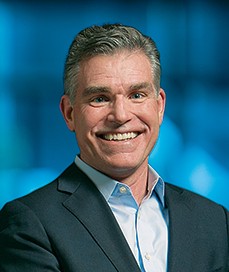David F. Meaney, the Senior Associate Dean of Penn Engineering and Solomon R. Pollack Professor of Bioengineering, is known for his scholarship and innovation in neuroengineering and concussion science, his leadership as former Chair of the Department of Bioengineering, and for his marshaling of interdisciplinary research between Penn Engineering and the University’s health schools.
The Penn Engineering community has sprung into action over the course of the past few weeks in response to COVID-19. Meaney shared his perspective on those efforts and the ones that will come online as the pandemic continues to unfold.

It is remarkable to think that a little more than a month ago I was saying an early goodbye to students for their spring break. In the first week of March, I was wishing everyone a happy and safe break, emphasizing safe, not knowing how prophetic that word would be. I was also looking forward to my own spring break, traveling for the first time in many years over this part of the academic calendar.
And then our campus — and world — changed.
COVID-19 is among us, in ways that we can’t exactly measure. It is among us in ways that we feel — we probably know someone that has tested positive for the virus, and others that are living with someone that is sick. And we all realize the virus will be with us for some time; the exact amount we don’t know.
Which brings up the question — what can we do to fight this pandemic? Many of us are trying to find ways to keep our connections with others vibrant and strong in the world of Zoom, Hangout, and BlueJeans. That is important. Let me also say that I can’t wait to reconnect with everyone in person, and close my laptop for a week.
But staying connected is what everyone should do. I often think about what can engineers do?
As the Senior Associate Dean, I want to let you know what I’m seeing on a quiet, but not shuttered, Penn campus. Examples of our response to the pandemic include our faculty designing personal protective equipment for health care workers, and our students, faculty and staff volunteering to assemble it. Other faculty are inventing COVID-19 test kits that can be completed at home, with the results available in less than an hour. Professors are sharing their creative mask designs with the world, for free, to make sure that we can all feel comfortable walking outside. And yet others that are collaborating to make a vaccine that will help us put COVID-19 behind us, permanently.
All of this is happening at speeds we have never seen before. Ideas move to prototypes and testing in days, not months, and to product in a week. We are not alone — our colleagues across campus are working at light speed to generate better tests, treatments, and models to fight COVID-19. This time, nature has given us the problem. Time for us to solve it.
It’s more important than ever that we amplify one another’s voices and we want to hear from you. Learn more about Penn Engineering’s Share Your Story project here, and read entries here. You can also keep up-to-date on Penn Engineering’s pandemic response efforts here.
